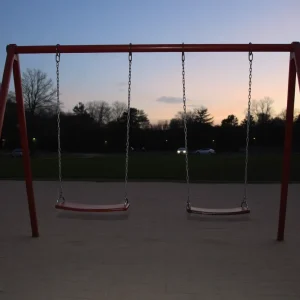COLUMBIA, S.C. – Federal Judge Denies Clemency Review for Death Row Inmate
A federal judge has denied South Carolina death row inmate Richard Moore the chance to have his clemency application reviewed by the state’s parole board instead of by the governor. Moore, who was convicted for killing a store clerk during a robbery in September 1999, is currently scheduled for execution on November 1. He has opted for lethal injection as his method of execution.
Details of the Case
Moore, now 59 years old, was sentenced to death after a series of crimes that culminated in the shooting of clerk James Mahoney at a Spartanburg County store. According to authorities, Moore entered the store unarmed but ended up in a shootout with Mahoney after wresting one of two firearms from him. Prosecutors assert that Moore was injured during this altercation, and his blood was discovered on Mahoney’s body as he searched for cash.
The Legal Proceedings
In his request to the judge, Moore argued that it was unconstitutional for Governor Henry McMaster to be the sole decision-maker regarding his clemency. He expressed concerns about the fairness of the judicial process he experienced, particularly noting that there were no African Americans on the jury that convicted him in a county where Black residents made up about 20% of the population at the time of the 2000 census.
However, Federal Judge Mary Geiger Lewis expressed reluctance to alter the current system that grants clemency solely to the governor, stating that she believes McMaster will carefully consider Moore’s petition.
Upcoming Execution
The state’s execution of Moore will mark only the second execution in South Carolina after a 13-year hiatus, primarily due to difficulties obtaining the drugs needed for lethal injections. The recent execution of Freddie Owens renewed South Carolina’s use of the death penalty. Moore’s case will be carried out under a new lethal injection protocol that employs a single dose of pentobarbital, similar to federal execution methods.
Implications of the Case
Moore’s legal team has reached out to the U.S. Supreme Court to intervene, arguing against the fairness of his original trial and the implications of having an all-white jury. They contend that such a circumstance illustrates the inherent biases within the death penalty system in South Carolina.
The lawyers have also emphasized Moore’s behavior while incarcerated, highlighting his spotless record and his attempts to improve himself and assist fellow inmates as reasons for a reprieve. “He’s very remorseful and sorry for the horrible, tragic decisions he made in his life,” stated attorney Lindsey Vann.
Governor’s Perspective
Governor McMaster, who previously served as a state attorney general, has consistently maintained a stance of supporting the judicial system. He has demonstrated his reluctance to use clemency and has previously denied requests for it, including in the case of Owens.
Public Sentiment and Controversy
Many advocates and supporters of Moore argue that the current application of the death penalty often leads to arbitrary outcomes. They believe that politicians can exert influence by emphasizing death penalty cases, even if those cases don’t necessarily represent the most heinous crimes. The lack of racial diversity on the jury during Moore’s trial has further fueled discussions on the fairness and implementation of capital punishment in the state.
As the execution date approaches, the debate surrounding Moore’s case and the broader implications of the death penalty in South Carolina continues to intensify, highlighting concerns over fairness, justice, and the ability for individuals to change.






